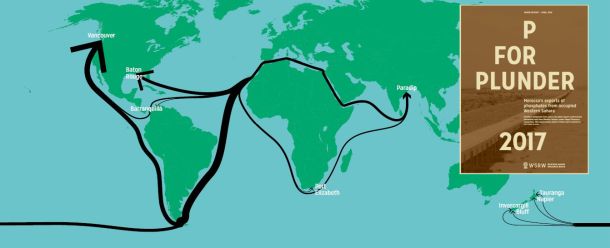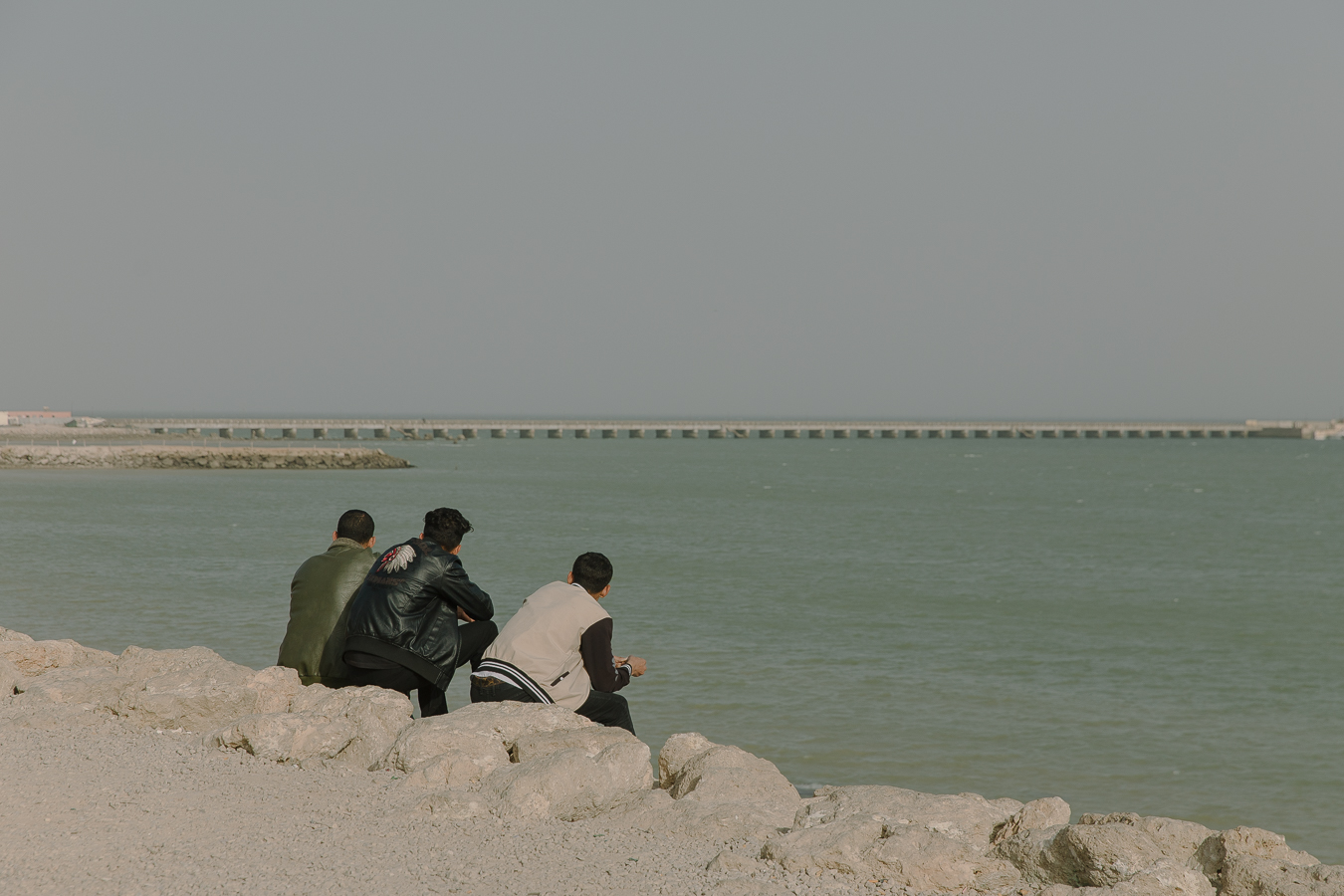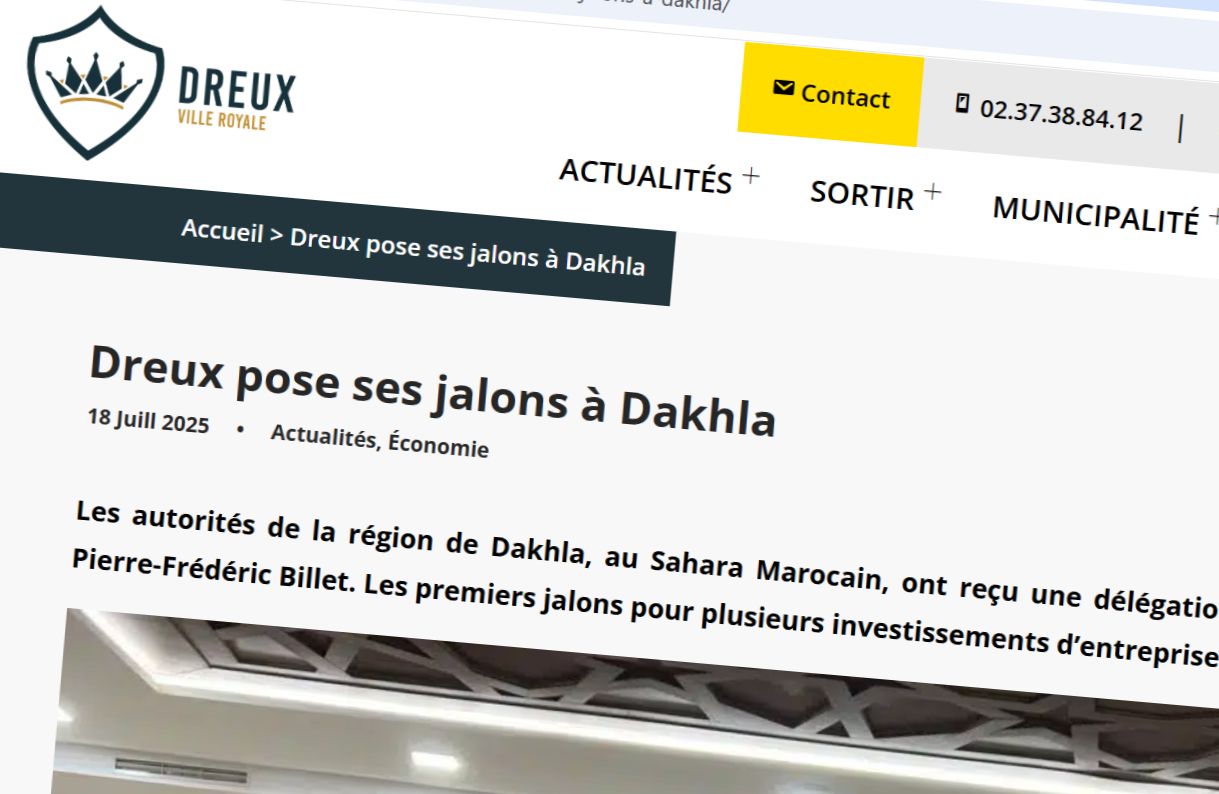
The Australian company confirms to undertake a pipeline study through Western Sahara, four months after WSRW contacted the company over the matter.
The map above is from Worley's website.
In a press release published on its website on 26 April 2022, Australian engineering company Worley Ltd confirmed that it has “been awarded a contract to provide main front-end engineering design (FEED phase II) services for the Nigeria-Morocco Gas Pipeline (NMGP) project”.
The NMGP is a new regional onshore and offshore gas pipeline that is intended to deliver natural gas resources of Nigeria to 13 countries in the West and North Africa, as a continuation of the existing West Africa Gas Pipeline (WAGP) between Nigeria, Benin, Togo, and Ghana. The NMGP project is promoted by Morocco’s Office National des Hydrocarbures et des Mines (ONHYM) and the Nigerian National Petroleum Corporation. Starting from Nigeria, the 7000 kilometres long NMGP will end at Tangiers, the Moroccan port on the Strait of Gibraltar, with a possible extension to Europe through Spain. The pipeline will thus run through occupied Western Sahara, without the consent of the people of Western Sahara.
On its website, Worley states that the pipeline will “cross 11 west African countries and extend to Europe” – a possible indication that Worley does not consider Western Sahara as a territory separate from Morocco. The website also contains a graphic depiction of the route of the pipeline that shows Western Sahara as part of Morocco. See a screenshot of that map on Worley’s webpage, taken on 28 April 2022, above.
Parts of Western Sahara have been under Moroccan foreign occupation since the 1970s, and Morocco refuses the people of the territory their internationally recognised right to self-determination and decolonisation.
While Worley will carry out the second phase of the FEED, several of its subsidiaries will reportedly also be involved in the project. Intecsea, based in the Netherlands, will be in charge of the entire FEED services, including the development of a project implementation framework as well as engineering survey monitoring. The company’s team in London, UK, will be responsible for the onshore FEED scope, as well as the Environmental and Social Impact Assessment (ESIA) and Land Acquisition Studies (LAS), with the help of Worley’s network of offices in Africa and its global integrated delivery group in Hyderabad, India. Worley’s consulting business, Advisian, will look into speeding electrification and the possibility of the region’s energy self-sufficiency.
Western Sahara Resource Watch (WSRW) has sent a letter to Worley on 5 May 2022, inquiring the company as to whether it has considered the rights of the people of Western Sahara when it accepted to take on the study. So far the company has not responded, nor has it answered a previous letter on the matter sent in December 2021.
WSRW has contacted Worley before in relation to its involvement in several other projects of the Moroccan government in occupied Western Sahara: through a 50/50 stake in the joint-venture JESA, Worley co-owns with the Moroccan state-owned phosphate company OCP an integrated fertilizer platform and a new phosphate wharf in occupied Western Sahara. JESA is also the project owner of the Foum El Oued Technopole project, located in the occupied territory. See letters from WSRW to Worley on 9 December 2019 and 17 March 2021. None of the letters were responded to.
A key funder of the study is OPEC, which also failed to respond to letters from Western Sahara Resource Watch.
Since you're here....
WSRW’s work is being read and used more than ever. We work totally independently and to a large extent voluntarily. Our work takes time, dedication and diligence. But we do it because we believe it matters – and we hope you do too. We look for more monthly donors to support our work. If you'd like to contribute to our work – 3€, 5€, 8€ monthly… what you can spare – the future of WSRW would be much more secure. You can set up a monthly donation to WSRW quickly here.
New report: Western Sahara phosphate trade halved
The export of phosphate rock from occupied Western Sahara has never been lower than in 2019. This is revealed in the new WSRW report P for Plunder, published today.
New report on contentious Western Sahara phosphate trade
Morocco shipped over 1.5 million tonnes of phosphate out of occupied Western Sahara in 2017, to the tune of over $142 million. But the number of international importers of the contentious conflict mineral is waning, WSRW's annual report shows.
Canary trade mission to legal minefield
A publicly organised mission will take Canary companies into occupied Western Sahara later this month.
French publicly-owned firm plans energy project in occupied Western Sahara
The French town of Dreux considers ignoring a ruling in the French courts and to engage with a controversial energy operation in occupied Western Sahara.



